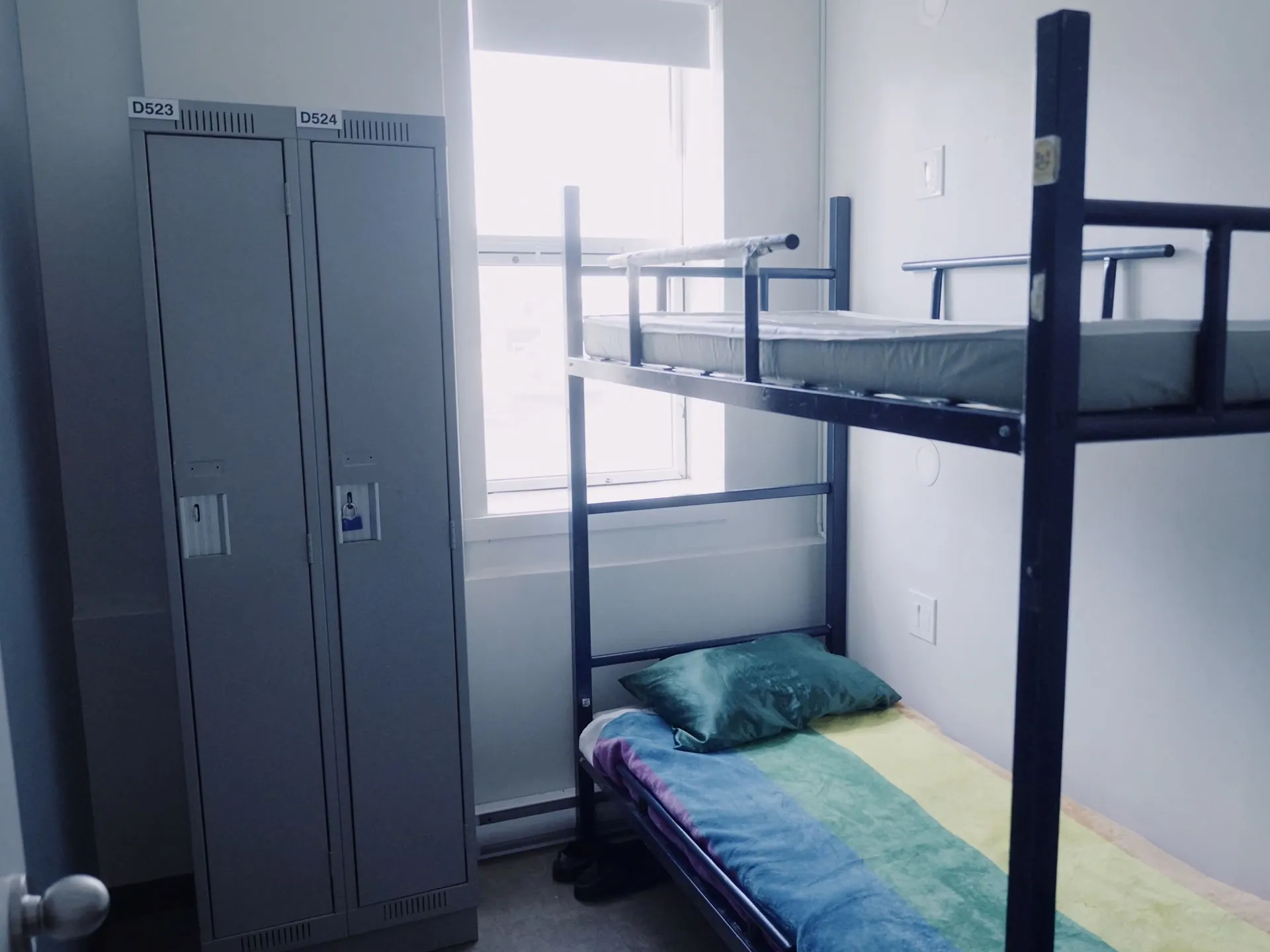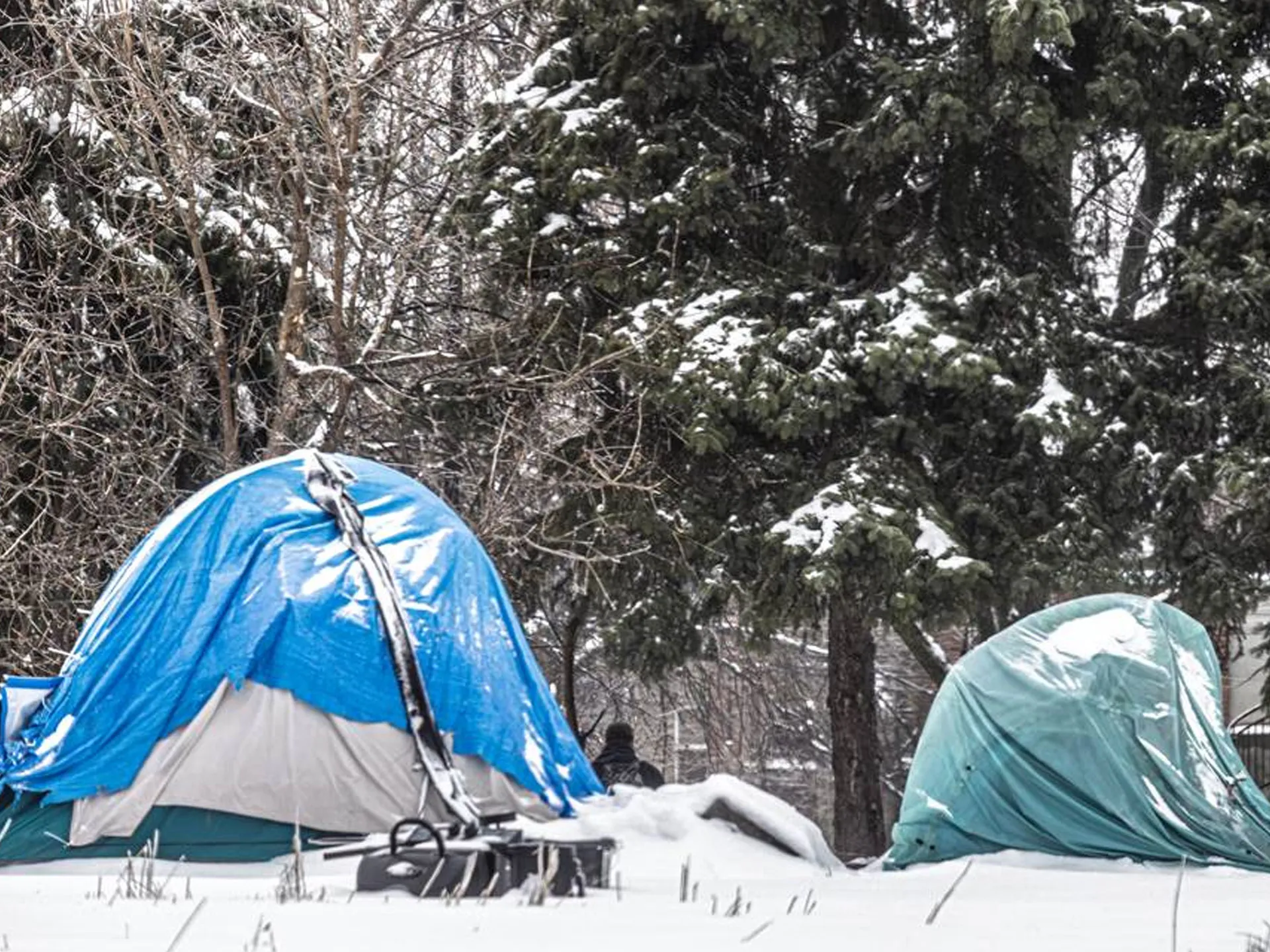
Emergency

Sustainable reaffiliation requires psychosocial support programs
When an individual doesn’t manage to fulfil their fundamental needs (to feed, house and clothe themselves), emergency action must be taken. Our intervention teams work to establish a relationship of trust with the people who come to our doors, first to meet their basic needs and then to help them achieve physical and mental stability so they can regain their independence and ability to find housing.
Emergency services and programs
With emergency housing programs that address specific challenges, such as mental and physical health issues, and complementary outreach services to meet the basic needs of vulnerable people outside our walls, we work to stabilize each person as quickly as possible.
-
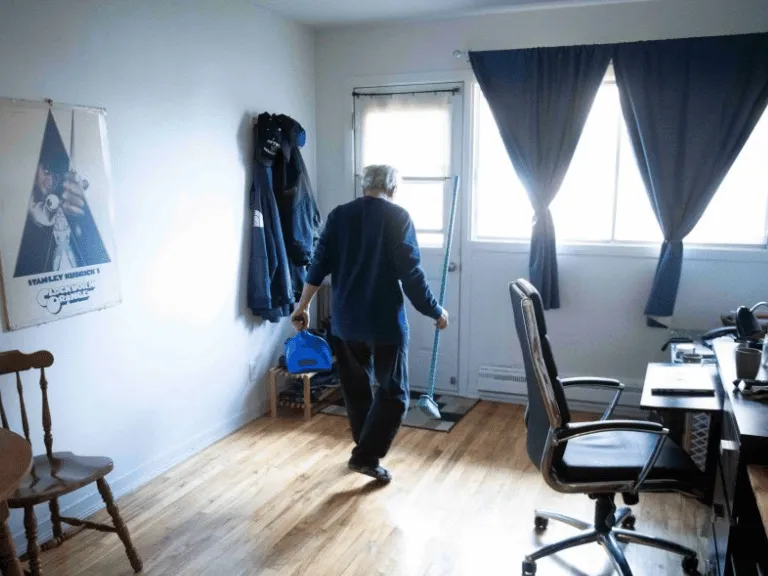 Program
ProgramAccueil
Accueil is a housing and support program for men experiencing homelessness for the first time. From the moment they arrive at the Old Brewery Mission, they receive psychosocial support and start developing a plan to leave homelessness behind.
-
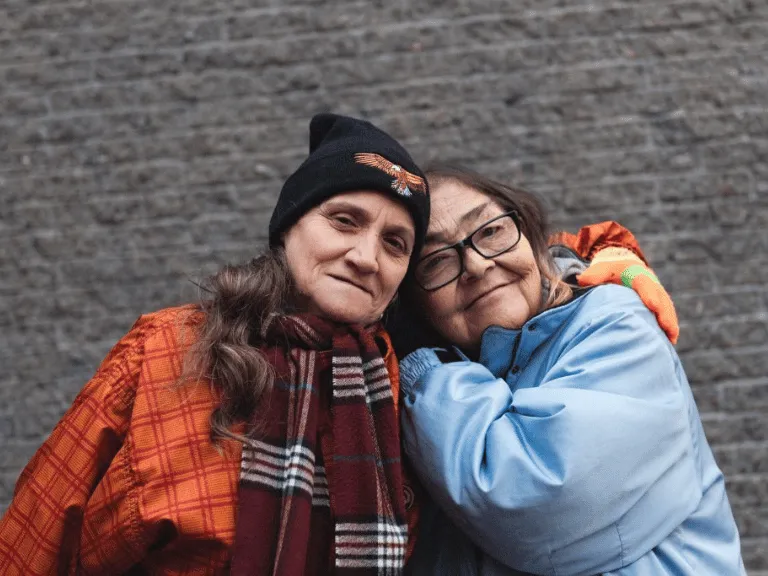 Program
ProgramColocs du PMP
Les Colocs du PMP is the final stepping stone for women preparing to leave emergency programs and move into their own home.
-
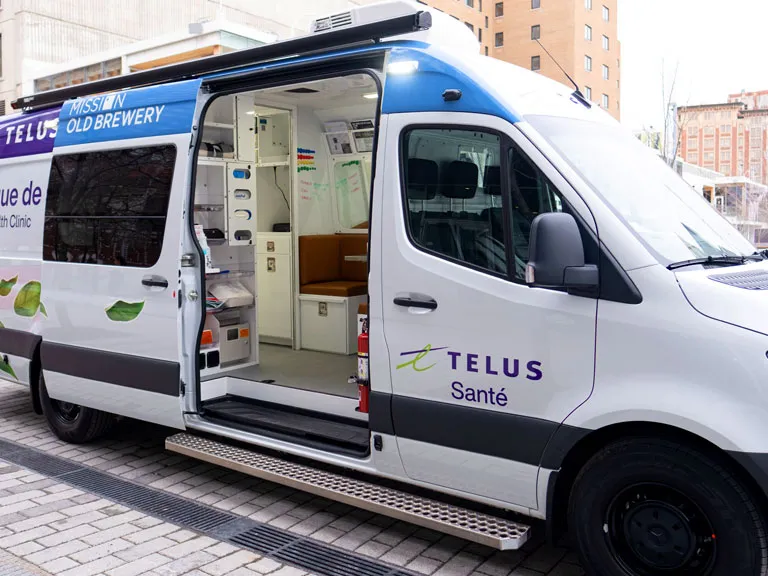 Outreach service
Outreach serviceReaffiliation mobile support team
The Old Brewery Mission Mobile Clinic, powered by TELUS Health, was launched in spring 2023 to meet the needs of clients living outside our walls.
-
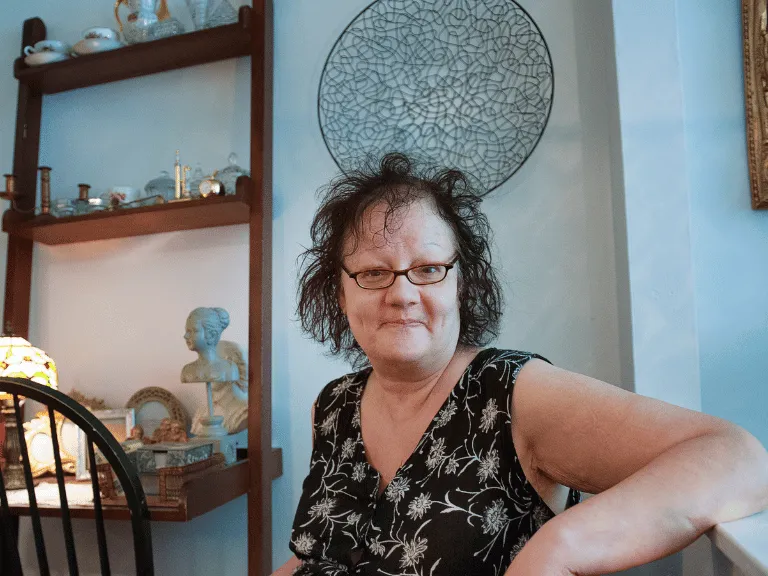 Program
ProgramÉtape and Étape+
Étape and Étape+ are housing programs with psychosocial support for women staying at the Patricia Mackenzie Pavilion.
-
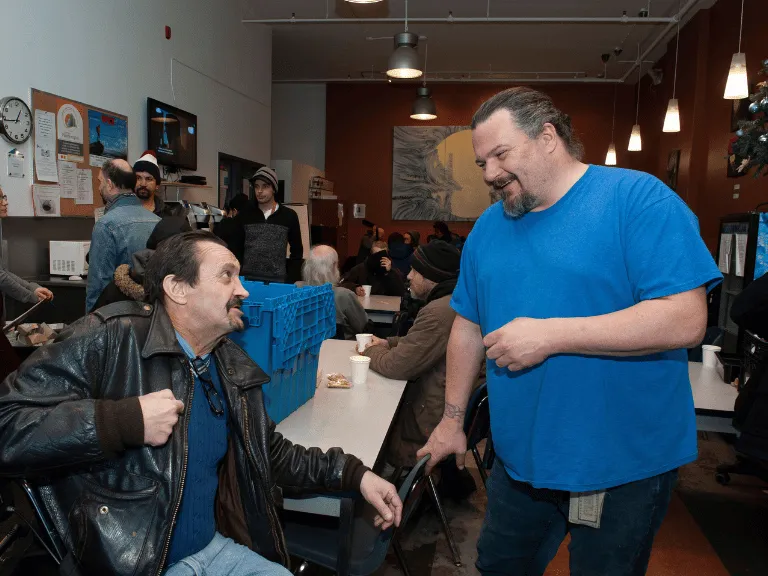 Outreach service
Outreach serviceCafé Mission Keurig respite centre
Café Mission Keurig is known as the place to go for comfort in freezing cold and sweltering heat. Over time, it has become a linchpin of our support services for people experiencing homelessness in Montreal.
-
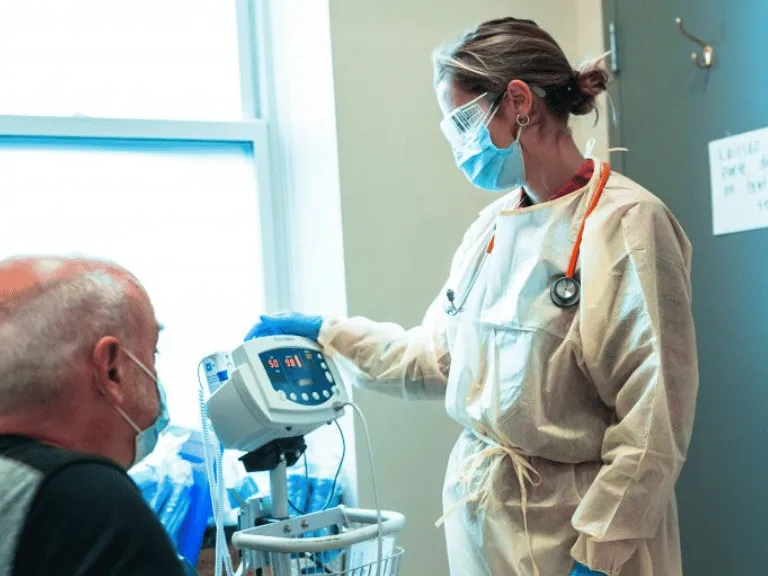 Program
ProgramPause Santé
The Pause-Santé emergency housing program is for unhoused men leaving a healthcare facility and in need of medical care.
-
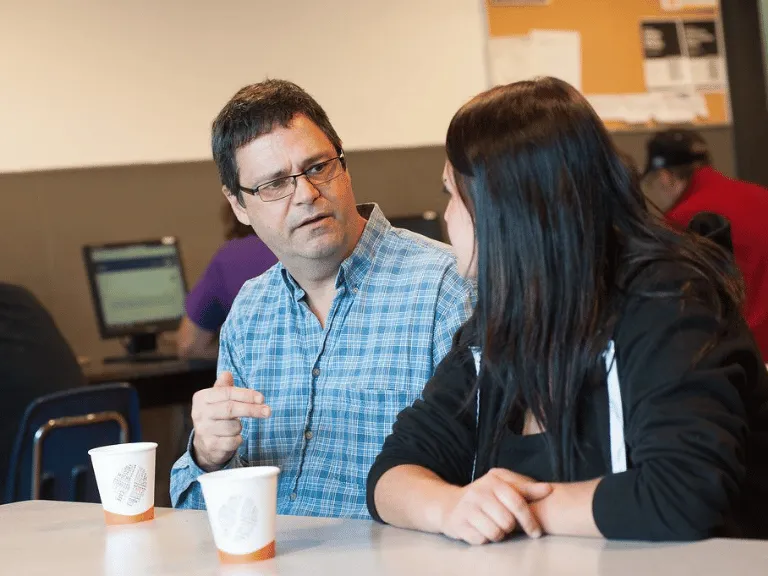 Program
ProgramPRISM-Cogeco
PRISM-Cogeco (Projet de réaffiliation en itinérance et santé mentale) aims to help people with severe and persistent mental health problems achieve stability and sustainable reaffiliation.
-
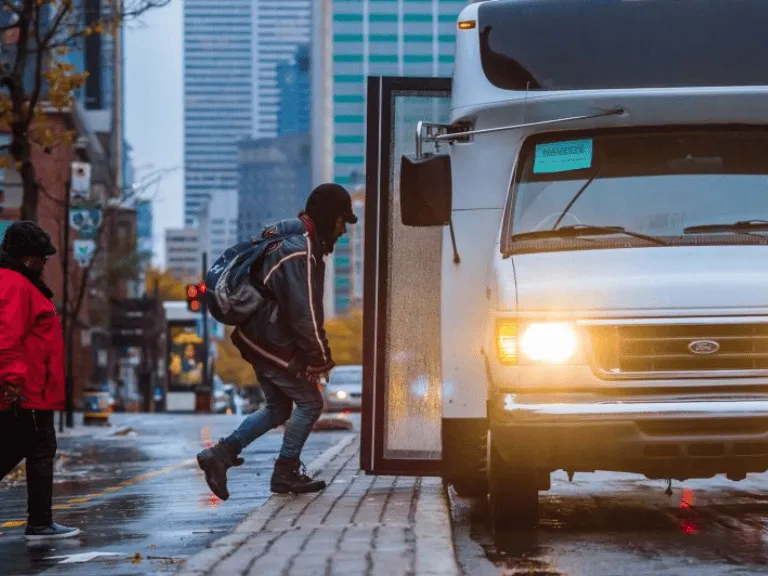 Outreach service
Outreach serviceShuttle service
The shuttle carries people experiencing homelessness to where they want to go in the evening.
-
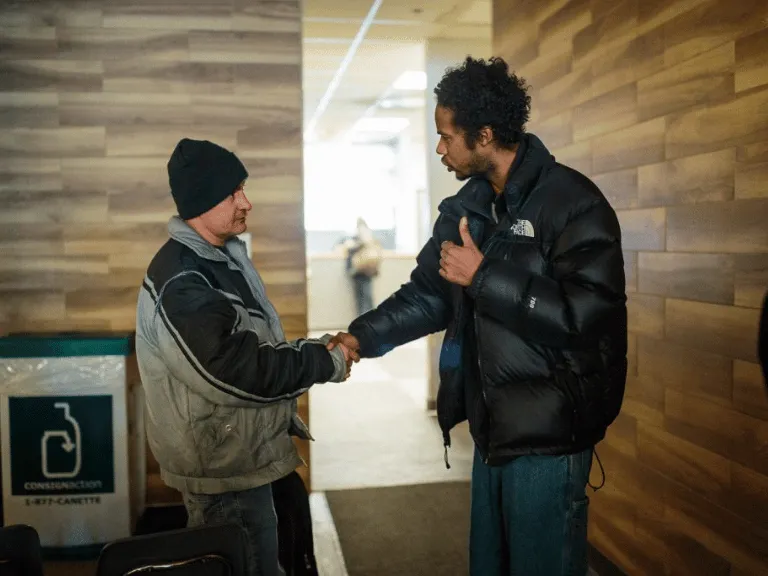 Program
ProgramSuivi intensif en itinérance
Suivi intensif en itinérance (SII) is a program specifically for people experiencing or at risk of homelessness who have mental health issues.
-
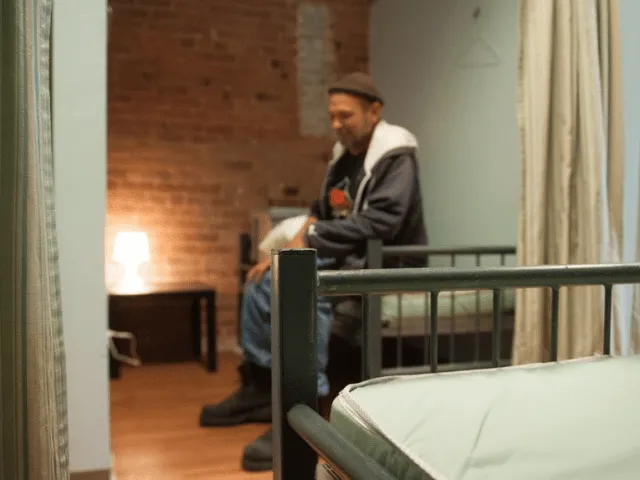 Program
ProgramUrgence et transition
The Urgence et transition program is mainly for our chronic and episodic clients.
Accueil

Accueil is a housing and support program for men experiencing homelessness for the first time. From the moment they arrive at the Old Brewery Mission, they receive psychosocial support and start developing a plan to leave homelessness behind.
For someone who has never experienced homelessness before, living on the streets can be shocking and overwhelming. Most of them are unprepared for the stark reality of an emergency shelter, and entering this environment without the proper support can put them at even greater risk of falling into chronic homelessness.
The Accueil program aims to break the cycle of homelessness before it really begins.
This psychosocial support program is made possible by financial support from the CDPQ.
Colocs du PMP

Les Colocs du PMP is the final stepping stone for women preparing to leave emergency programs and move into their own home.
Each resident has a private or semi-private room while sharing a fully equipped modern kitchen, living room, laundry room, and bathroom with her roommates. The goal is to replicate the apartment living experience in order to support women along the path out of our emergency shelter services. However, our staff are on hand to offer psychosocial support when needed.
The fourth floor of the Patricia Mackenzie Pavilion was converted into a spacious shared apartment in 2012. Ten women live there as part of the Colocs du PMP program.
Reaffiliation mobile support team

The Old Brewery Mission Mobile Clinic, powered by TELUS Health, was launched in spring 2023 to meet the needs of clients living outside our walls.
The Mobile Team offers people experiencing homelessness in Montreal cohabitation and reaffiliation support services, including tax clinics, legal clinics and referrals. It reaches people who don’t come to emergency shelters and engages with them in public spaces. Other partners, such as the Mobile Legal Clinic and McGill University’s Ingram School of Nursing, provide complementary services to support long-term reaffiliation for this population.
- Physical health care and psychosocial support, including preventive examinations, harm reduction services and referrals to other health services.
- Cohabitation and reaffiliation support services, including referrals to local support, legal services, and assistance with paperwork such as RAMQ enrollment.
- Rehousing assistance, including tax return preparation, access to identification documents and housing applications.
The clinic is on the move Monday to Friday, from 8 a.m. to 4 p.m., mainly in the Ville-Marie district.
Étape and Étape+

Étape and Étape+ are housing programs with psychosocial support for women staying at the Patricia Mackenzie Pavilion.
Most women who come through our doors for the first time enter the Étape program upon arrival and move on to Étape+ after a month. Our support services are tailored to each woman’s pace, ability and desire in order to help her achieve her personal goals, not to any specific length of stay or to a pre-established schedule.
The accommodation provided includes thirteen semi-private rooms, for a total of twenty-six reserved spaces for the Étape and Étape+ programs at the Patricia Mackenzie Pavilion.
Café Mission Keurig respite centre

Café Mission Keurig is known as the place to go for comfort in freezing cold and sweltering heat. Over time, it has become a linchpin of our support services for people experiencing homelessness in Montreal.
At Café Mission, our intervention teams connect with the vulnerable individuals who walk in the door and help them transition to rehousing.
Showers, laundry facilities and Internet access are available to visitors at Café Mission. Snacks and coffee are provided.
The respite has a capacity for 55 people. Café Mission is open 24 hours a day from Monday to Friday, and at night on Saturdays and Sundays.
Pause Santé

The Pause-Santé emergency housing program is for unhoused men leaving a healthcare facility and in need of medical care.
Residents are assigned to their existing multidisciplinary care team or, if they do not have one, our department will assign them one. The Pause-Santé program therefore allows them to receive appropriate health care in a safe and stable environment while they undergo treatment. Psychosocial support is provided by our intervention teams, with the goal of helping them find new housing when their health allows.
The Pause-Santé program has 14 spaces at the Webster Pavilion.
This psychosocial support program is made possible by financial support from BMO.
PRISM-Cogeco

PRISM-Cogeco (Projet de réaffiliation en itinérance et santé mentale) aims to help people with severe and persistent mental health problems achieve stability and sustainable reaffiliation.
Our intervention team is joined by a multidisciplinary team from the CIUSSS du Centre-Sud-de-l’Île-de-Montréal. PRISM helps prevent hospitalizations caused by the disorganization of people experiencing homelessness.
The program was launched in 2013 at the Webster Pavilion and in 2015 at the Patricia Mackenzie Pavilion.
13 spaces are reserved for these clients at the Webster Pavilion, and 10 at the Patricia Mackenzie Pavilion.
Shuttle service

The shuttle carries people experiencing homelessness to where they want to go in the evening.
It goes to the places frequented by people experiencing homelessness and to partner organizations to facilitate people’s access to places and resources.
The shuttle is a complementary service that supports effective coordination of shelter spaces and safe transit for people experiencing homelessness.
The shuttle service is provided during the evening, 7 days a week.
Suivi intensif en itinérance

Suivi intensif en itinérance (SII) is a program specifically for people experiencing or at risk of homelessness who have mental health issues.
A hallmark of SII is that the Old Brewery Mission’s intervention team meets individuals wherever they are in their journey: on the street, in an encampment, in a shelter.
15 spaces are reserved for participants in the program at the Webster Pavilion.
Urgence et transition

The Urgence et transition program is mainly for our chronic and episodic clients.
Unlike most of our housing programs, it does not address specific issues or challenges. Clients work with our intervention team to draw up an individualized reaffiliation plan with a view to finding a rehousing solution adapted to their needs.
The majority of our emergency shelter spaces are reserved for this program. There are 98 spaces for the Urgence et transition program at the Webster Pavilion and all 100 spaces at the Le Royer Pavilion (Hôtel-Dieu Hospital).
This psychosocial support program is made possible by financial support from Power Corporation.
Emergency by the numbers
Every year, we welcome hundreds of people into our emergency shelter services.
-
574
men were welcomed at the Webster Pavilion
-
567
different stays at Hôtel-Dieu Hospital
-
170
women or non-binary people have received services at the Patricia Mackenzie Pavilion
It’s my doctor who suggested that I go to the Old Brewery Mission. I was sleeping in a park expecting to die during the winter in a snowbank. Having a place to shelter myself, warm up, sleep and eat changed everything.
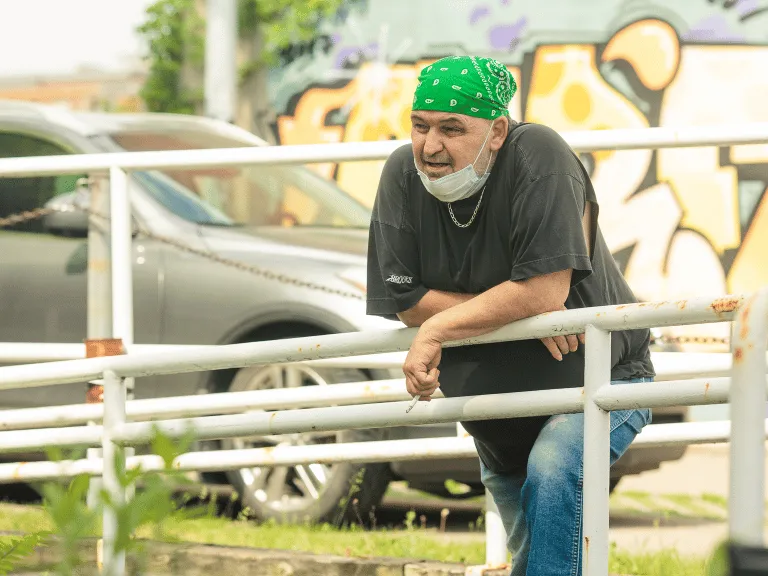
Three more steps to end homelessness
Over the past few years, Montreal’s homelessness organizations have joined forces to present municipal and provincial authorities with proposals for improving services for people experiencing or at risk of homelessness.
The Un pas de plus… vers la fin de l’itinérance plan, produced in June 2021 through an inter-organisation collaboration, aimed to transform ad hoc winter services into ongoing services and to improve an individual’s journey through the services and programs of helping organizations. Some of the proposals in the plan received government funding while others did not. The needs identified in 2021 still exist today.
The Trois pas de plus… pour mettre fin à l’itinérance plan takes these needs into account and adds an essential element: the creation of resources and services to support the process of accessing housing. Work is in progress with the Ministère de la Santé et des Services Sociaux to establish a coordinated access system, which will complete the plan by adding a regional organizing structure.
